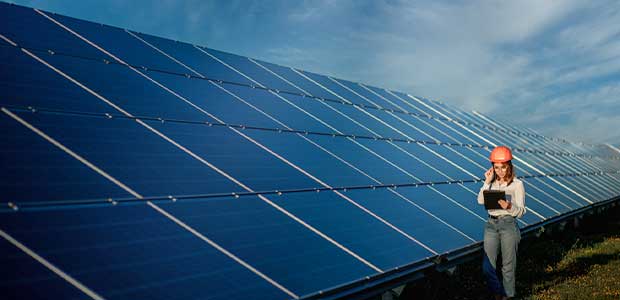Just How Solar Power Can Assist You Save Money and Reduce Your Carbon Impact
The assimilation of solar power into your energy portfolio presents a compelling opportunity for both economic savings and ecological stewardship. As different federal government rewards end up being offered, the question arises: exactly how can one efficiently navigate the first financial investments and continuous advantages of solar technology to make best use of both financial and ecological gains?
Comprehending Solar Power Financial Savings
While the shift to solar power often involves a first investment, understanding solar energy savings is crucial for homeowners and organizations alike. Solar power systems can significantly lower electrical power costs by taking advantage of the sunlight's energy, equating right into significant lasting financial advantages. By generating their very own electrical energy, customers minimize reliance on grid power, which undergoes varying costs. These financial savings can gather with time, frequently leading to a fast return on financial investment.
Additionally, solar power systems might qualify for different monetary incentives, including tax obligation credit scores and rebates, even more enhancing their cost-effectiveness. The availability of web metering enables users to market excess power back to the grid, producing an added earnings stream. These aspects add to the overall financial savings connected with solar energy.

Along with guide financial cost savings, solar power supplies the added benefit of enhancing building worth. Residences equipped with solar panels are typically a lot more appealing to purchasers, as they guarantee lower energy costs - Simply Solar Illinois. Comprehending these aspects is vital for any individual thinking about solar power, as it highlights not simply the possible monetary gains, however likewise the broader ecological and financial advantages of adopting eco-friendly power options
Preliminary Costs vs. Long-Term Benefits
When evaluating solar power, it is important to consider the first expenses versus the lasting advantages. The upfront financial investment for photovoltaic panels, setup, and related equipment can be substantial, typically ranging from $15,000 to $30,000, depending on the system dimension and home energy needs. This initial expense may hinder some home owners; nevertheless, it is crucial to take into consideration the prospective savings with time.
When installed, solar energy systems can dramatically lower and even eliminate regular monthly electrical power costs, bring about significant long-term economic benefits. Researches indicate that home owners can save anywhere from $10,000 to $30,000 over the lifespan of their planetary system, generally 25 years. Furthermore, many states use incentives, tax credit scores, and refunds that can counter initial expenses, making solar extra available.

Decreasing Your Carbon Impact
Decreasing your carbon impact is a vital consideration in today's ecologically conscious society, and embracing solar power is just one of the most effective approaches to accomplish this objective. Solar power is a tidy, renewable resource that dramatically reduces dependence on nonrenewable fuel sources, which are significant factors to greenhouse gas discharges.

Additionally, the prevalent fostering of solar modern technology urges the growth of environment-friendly tasks and sustains technologies in power storage and performance. The more people and official site companies spend in solar energy, the greater the cumulative reduction in carbon exhausts, fostering a cleaner environment for future generations.
Federal Government Rewards and Discounts
Embracing solar energy not just benefits the atmosphere but can likewise bring about significant monetary cost savings, especially with the accessibility of federal government incentives and refunds. Numerous federal, state, and neighborhood programs are developed to urge property owners and businesses to buy solar power systems, making the change extra inexpensive.
One of one of the most noticeable incentives is the Federal Investment Tax Credit Rating (ITC), which permits planetary system proprietors to deduct a considerable percent of the setup prices from their government taxes. This incentive has been critical in minimizing the in advance expenditures connected with solar power systems. In addition, lots of states provide their very own tax credit histories, gives, and refunds that can additionally improve cost savings.
Moreover, some city governments supply building tax obligation exceptions for solar setups, making sure that home owners do not deal with enhanced property taxes as a result of their renewable energy investments. Utility firms might likewise provide incentives, including net metering and feed-in tariffs, which permit solar power individuals to sell excess power back to the grid.
Picking the Right Solar System
Choosing the suitable solar system is essential for making best use of power effectiveness and financial advantages. The decision rests on numerous aspects, including power needs, budget, and readily available area. Property owners visit should start by evaluating their electrical power usage to identify the system dimension required for optimum performance.
Following, think about the different types of solar innovations available. Simply Solar Illinois. Photovoltaic Or Pv (PV) panels are the most typical, converting sunshine straight into electrical energy, while solar thermal systems focus on home heating water. Each kind has distinct advantages depending on private needs
Budget plan factors to consider are also vital. Initial installation expenses can differ substantially, so it is very important to contrast quotes from numerous carriers and check out funding choices. Federal government incentives and refunds can better decrease the financial burden, making solar systems extra available.
Final Thought
In recap, solar energy presents a feasible service for attaining significant price savings while at the same time decreasing carbon discharges. The first financial investment, though considerable, returns considerable long-lasting economic advantages, with possible savings ranging from $10,000 to $30,000 over 25 years. Additionally, the environmental benefits of solar power add to lasting techniques essential for combating climate modification. Government rewards improve the expediency of solar innovation adoption, encouraging a transition towards a cleaner, more economically reliable power resource.
Comments on “Make the Switch with Simply Solar Illinois – Solar Panels You Can Rely On”